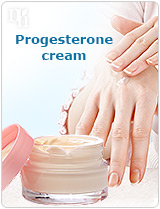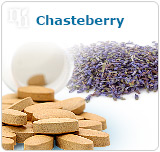Many women will find themselves with dipping levels of progesterone during menopause. Regular doctor's visits and routine check-ups are recommended for women because it can easily be established though blood tests whether women are experiencing a hormonal imbalance. There are numerous progesterone aids that are now available to help women regulate their progesterone levels. By leveling progesterone levels women can fight the most common symptoms of menopause, including mood swings, hot flashes, night sweats and vaginal dryness. Read more about natural ways to balance progesterone levels.
Natural Progesterone Cream

Natural progesterone cream introduces a bio-available form of progesterone into your bloodstream. This progesterone is similar to the type your own body produces, so it's like it came from your own glands, according to Ray Sahelian, M.D. and author of the article "Progesterone Hormone Benefits and Progesterone Side Effects." The cream is derived from natural plant sources and applied daily to thin areas of skin. When it's time for menstruation, the cream isn't used and the progesterone withdrawal causes menstrual bleeding. This makes it helpful for regulating cycles affected by inadequate progesterone production.
Vitex (Chaste tree berry)

Chaste tree berry is being studied for its ability to regulate hormones and ease symptoms of infertility and premenstrual syndrome, according to the National Center for Complementary and Alternative Medicine. It stimulates the corpus luteum, helping it to produce estrogen and progesterone in more balanced ways. This is effective for women who have low progesterone and high estrogen, a condition referred to as estrogen dominance. Chastree is not a hormone; its actions are indirect.
Vitamin E

Your body needs vitamin E in order to produce progesterone. Dr. David G. Williams discusses the role of vitamin E for hormone health in the article About Progesterone, published on World Health. In the article, he reports that vitamin E affects the body's ability to produce progesterone. Too little vitamin E leads to low progesterone. Aim to get 150IU per day.
If you want to learn more, click on the following link to find out about progesterone deficiency.


